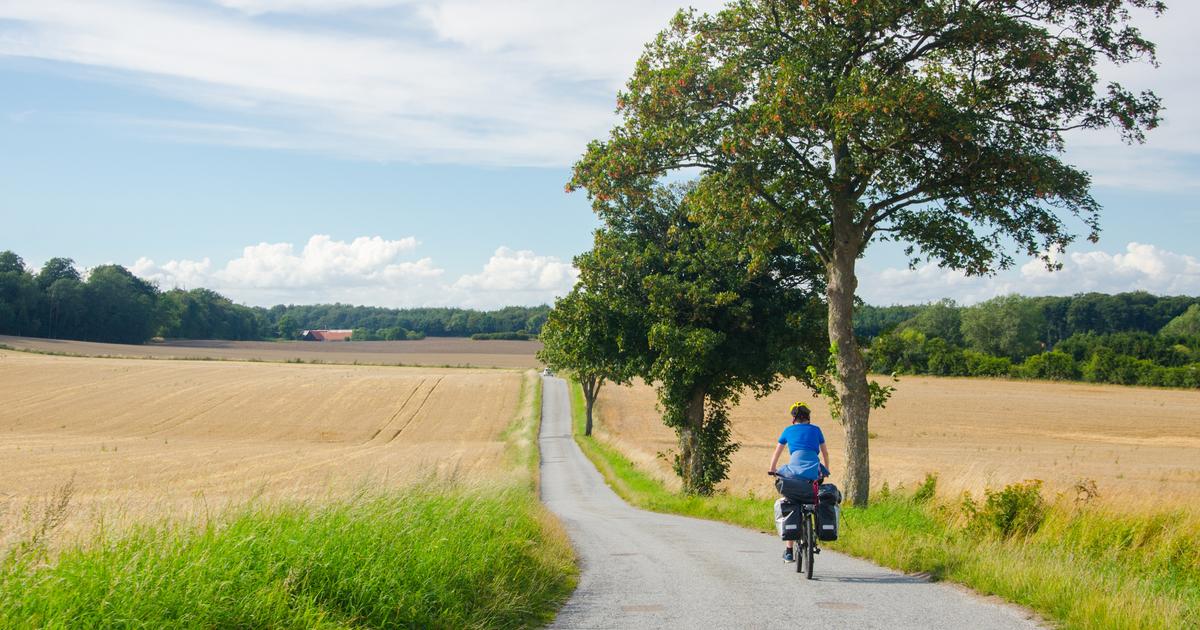Le Figaro Nantes
In less than ten years, there should be more cycle routes than departmental roads in Loire-Atlantique.
6000km versus 4300km.
“We are going to create 3,700km [of bicycle connections].
You see the parallel in the figure, we are almost on the same linear line!”
, exclaims with a smile Freddy Hervochon, vice-president in charge of mobility.
Friday morning, he presented with more details than a year ago an ambitious plan which should be adopted during the next budget session.
By 2032, all municipalities in the department will be connected by cycling infrastructure.
“We consider that we must
reduce the share of the car
in daily travel
,” explains Michel Ménard, the president (PS) of the department.
A refrain.
Except that the community intends to put the resources into it: 140 million will be invested over eight years, or three times more than until now.
And no territory will be forgotten.
“Today, when people use bicycles in the metropolis, it’s good.
But we say that in rural areas, we can and we want cycling to become established
,” continues Freddy Hervochon, also mayor of Bouaye, a town of 7,300 inhabitants.
Express cycle lanes
This one was very inspired by the Netherlands or Denmark.
In Copenhagen, people use their bikes primarily for reasons of efficiency and speed.
In Loire-Atlantique, 470 “utility”
routes
will be gradually created, in conjunction with intermunicipalities and town halls.
“This means direct, rapid connections, from a point in your municipality to the metropolis for example
,” describes the elected official who imagines
“express cycle lanes.
Not the coating, the sand
.
This roadmap does not come out of nowhere.
The Department is already working on this by, for example, making 800 electric bikes available for rental to twelve intermunicipalities.
It is also on these bicycles equipped with motors that elected officials rely.
“In rural areas, we know that beyond 5km, it drops.
With an
electrically assisted bike
, you can go up to 15km.
We are changing the situation and the relationship, we are multiplying by three the capacity to move around
,” enthuses Freddy Hervochon.
And for longer distances, there is always the solution of a folding bike to slide onto a train.
Decision-makers are also looking at tracks connected to stations.
The layout of the trails will be systematically decided in consultation with users.
“Residents are looking for this type of travel, especially the younger generations. We feel it in rural communities
,” indicates to Le
Figaro
Jean-Paul Naud, the mayor of Notre-Dame-des-Landes and member of the office of Rural Mayors of Loire-Atlantique.
Of course, the bicycle will never replace the car but
“in the countryside, a large part of the trips are within the commune and over a very short distance”
.
It remains certain that if there were more adapted infrastructures, more people would use them.
“Cycling is not reserved for cities, nor for younger generations.”
I realize that we want to start again like when we were in 1900. We are going to put horses back!
Brigitte Maison, mayor of Juigné-des-moutiers, the smallest town in Loire-Atlantique
“Not all people can ride a bike like that
,” says Brigitte Maison, mayor of the smallest area of Loire Atlantique.
“In rural areas, we cannot remove cars.
People will work with it.
We’re going to do our shopping with it
,” she emphasizes.
Two departmental roads cross the village of Juigné-des-Moutiers, populated by 330 inhabitants.
No cycle path has yet appeared there.
The councilor is of course not opposed to it, on the contrary:
“Yes, it is going in the right direction.
But we have to find places to do them
. ”
With the zero artificialization law, creating a new junction requires renaturing a space elsewhere.
The chaussidou, which consists of drawing a track on a road, allows this rule to be circumvented even if it does not always reassure users.
But beyond these technical aspects, Brigitte Maison views these developments with a cautious eye.
“It makes me laugh.
I realize that we want to start again like when we were in 1900. We are going to put horses back!”
, laughs the one who still wonders about the definition of the word
“ecology”
.
In any case, it is a term that is unanimously politically.
“We want to do everything we can to fight climate change
,” explains Thierry Deville, councilor for the coastal canton of Saint-Brévin, and spokesperson for the departmental minority group Démocratie 44 on the bicycle issue.
By definition, it adheres to the alternatives deployed to bypass the car.
Without erasing it from the map:
“We have to remain realistic.
It is not possible to delete the car today.
Some rural communities do not have public transportation.
Cycling is possible and widely used but it is not possible to travel long distances.
The car still has a bright future ahead of it.
We must continue to use it wisely.”
In the meantime, he took the opportunity to slip a dig at the departmental majority by asking them to better maintain the already existing sections, particularly on the tourist route La Loire à vélo.
The Department is considering in a second phase
“creating operating services”
for cycle routes, specifies elected official Freddy Hervochon, like the departmental road patrollers.
But the first step already consists of thinking about future routes.
In 2023, around twenty road projects were abandoned in the department:
“this frees up time”
.
Technicians and engineers will be redeployed to design the cycling network.

